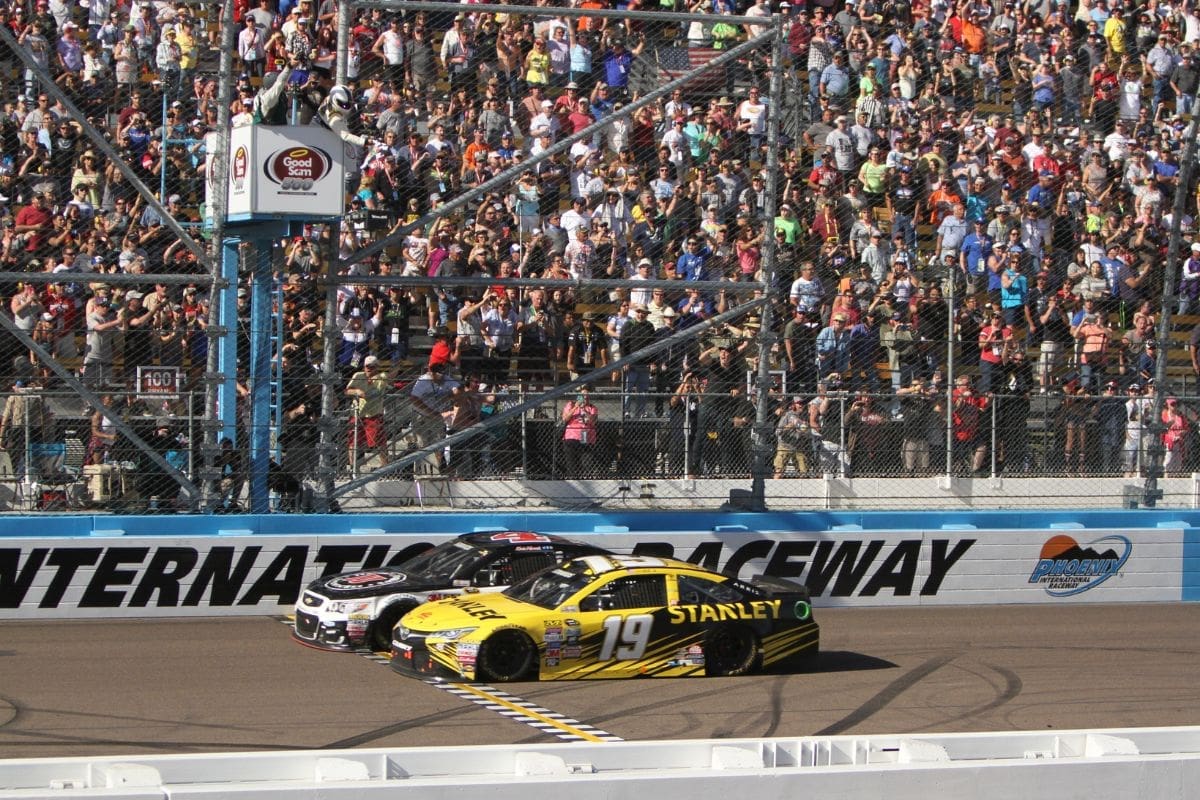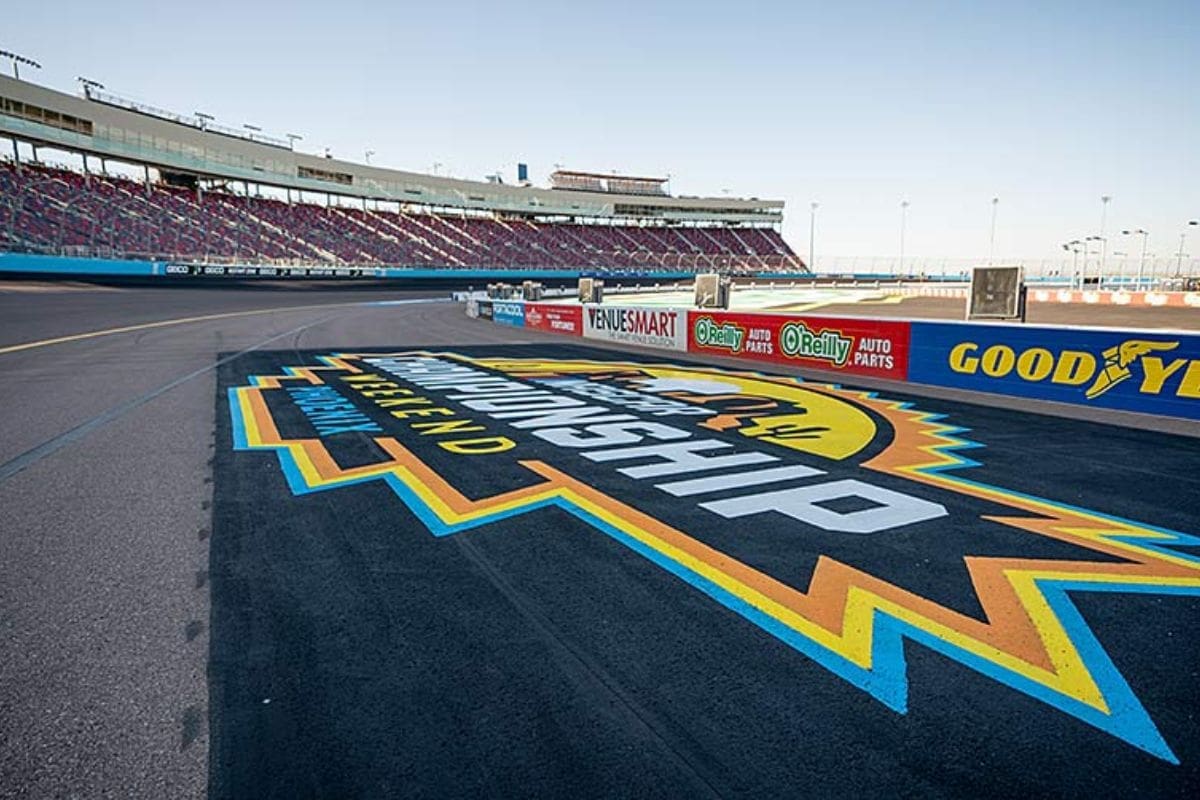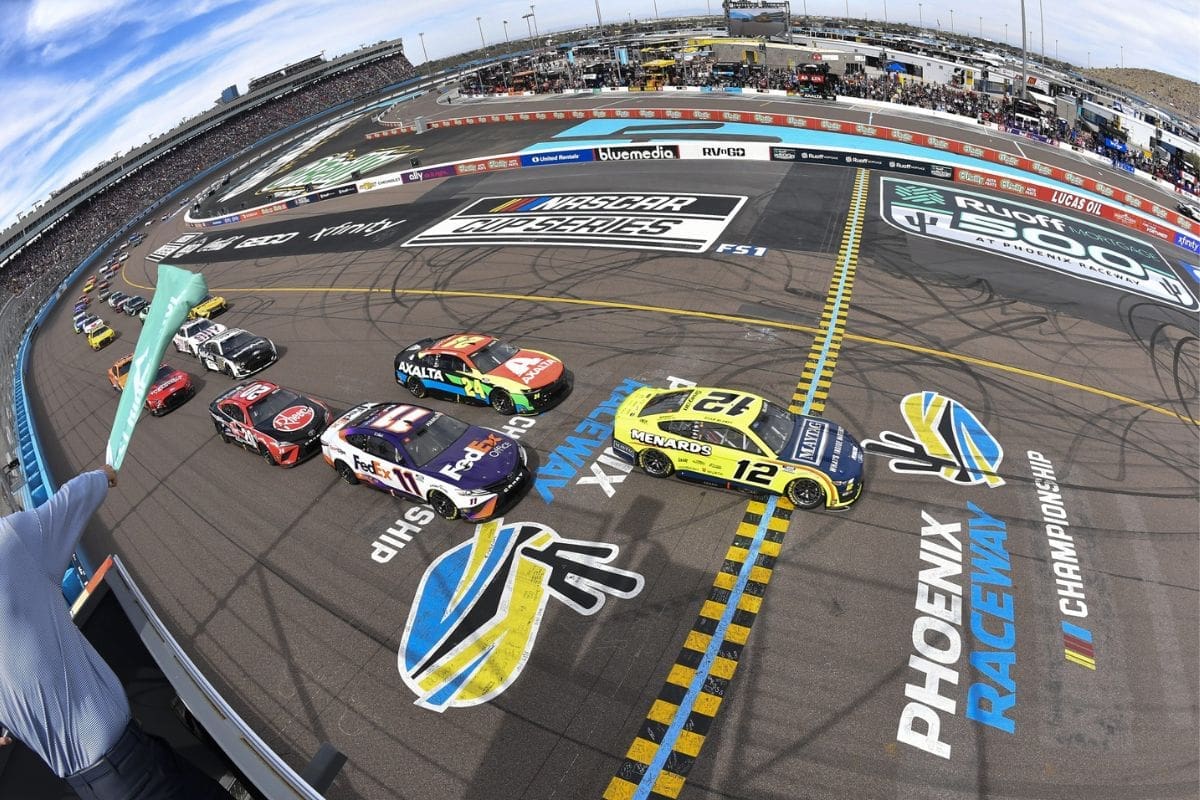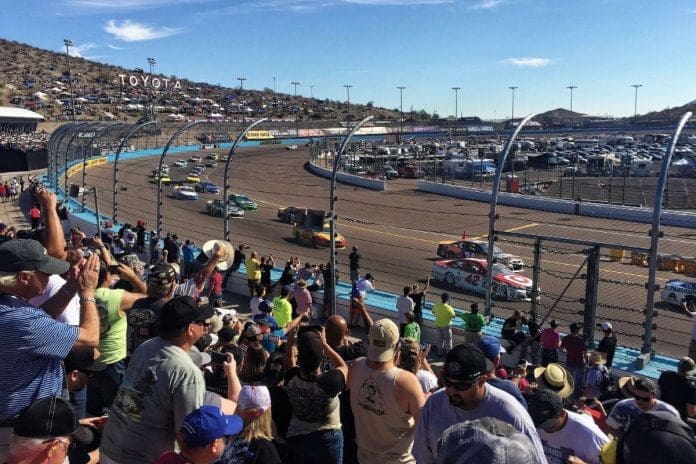NASCAR’s Final Race Choice Sparks Insider Outrage: NASCAR’s decision to stage the championship finale at Phoenix Raceway for the sixth consecutive year in 2025 has ignited significant controversy within the racing community. While Phoenix Raceway offers modern arrangement and a challenging track, critics argue it lacks the historical significance of other iconic venues and risks creating a repetitive championship narrative. This decision has led to an outcry from insiders, including drivers and fervent fans, who feel that a rotational system could better capture the sport’s diverse heritage and energize the fan base.
Key Highlights
- Fans and insiders express strong discontent with Phoenix Raceway hosting the championship race for the sixth consecutive year in 2025.
- Critics argue that the lack of venue rotation stifles diversity and unpredictability in the final race.
- NASCAR journalist Kelly Crandall and many fans voice frustration over the repetitive choice of Phoenix Raceway.
- Intense backlash arises on social media platforms, with fans suggesting alternative tracks for the championship finale.
- Drivers’ reactions range from mixed to strongly negative, reflecting growing dissatisfaction with Phoenix Raceway as the finale venue.
Phoenix Raceway Hosting Championship Weekend
Phoenix Raceway, a fixture in NASCAR’s elite circuit since 1988, is set to host Championship Weekend for the sixth consecutive year in 2025, drawing both anticipation and criticism from the racing community. As the desert track once more becomes the focal point of NASCAR’s climactic showdown, stakeholders are grappling with mixed emotions regarding its continued selection.
The 2025 decision highlights a broader strategic vision by NASCAR, emphasizing Phoenix Raceway’s modern amenities and strategic location. The track, situated in Avondale, Arizona, offers a unique blend of a one-mile oval with a tri-oval configuration, which has been praised for providing competitive racing and dramatic finishes. It provides a neutral ground that doesn’t inherently favor a particular racing style or team, which evidently levels the playing field for championship contenders.

Yet, the repeated choice of Phoenix as the finale venue has sparked discontent among some fans and insiders. Critics argue that the track’s atmosphere, while electric, lacks the historical significance seen at other iconic NASCAR venues. They also express concerns over potential monotony and reduced regional engagement, fearing the same backdrop year after year may diminish viewer enthusiasm.
History and Significance of Phoenix Raceway
Since its introduction to the NASCAR circuit in 1988, Phoenix Raceway has transformed into an essential venue that harmonizes modern racing demands with a distinctive track configuration, emphasizing its significance in the sport’s elite calendar. Located in Avondale, Arizona, the 1-mile tri-oval has evolved from a regional motorsports hub into a decisive stage for NASCAR’s most intense competitions.
The Raceway’s unique layout, featuring a dogleg turn and an unconventional start-finish line placement, demands a blend of strategic intelligence and driving skill, differentiating it from conventional oval tracks.
- Historical Milestones: The Raceway has hosted numerous landmark events, including Jeff Gordon’s initial victory in 2007 after a winless drought and Kevin Harvick’s dominance, earning him the moniker ‘The King of Phoenix.’
- Track Configuration: The unique ‘dogleg’ section provides drivers with multiple racing lines, fostering overtaking opportunities and strategic depth. This feature has solidified its reputation as a fan-favorite for unpredictable finishes.
- Modern Renovations: A recent $178 million renovation project has lifted the Raceway’s infrastructure, enhancing fan experience with upgraded amenities, while maintaining its competitive edge for drivers.
The decision to shift Phoenix Raceway into the season finale venue in 2020, following an 18-year tenure by Homestead-Miami Speedway, was a bold move by NASCAR.
Insider Criticism and Fan Reaction
While Phoenix Raceway’s elevation to the season finale venue highlights its growing prestige within NASCAR, it has also sparked a wave of insider criticism and fervent fan enthusiasm.
On one hand, insiders have voiced concerns over the decision to keep the final weekend race at the same track for consecutive years. Their criticism hinges on the idea that rotating the finale among different tracks could boost diversity and unpredictability, integral elements of NASCAR’s appeal. Critics argue that a static location could potentially lead to a monotonous championship narrative, undermining the sport’s dynamic nature.
Conversely, enthusiasm for Phoenix Raceway is palpable and fervent. Phoenix Raceway President Latasha Causey emphasized the passionate support. The statement captures the electric atmosphere that fans bring, turning the event into a festival-like celebration that resonates with the local community and traveling spectators equally.
Our fans are the heart and soul of Phoenix Raceway, and they create an unforgettable atmosphere for NASCAR Championship Weekend. They fill the grandstands and hillside and pack the GEICO Gecko Campground, which is nothing short of the best camping experience in all of NASCAR.” – Latasha Causey
The excitement is further accentuated by the newly inked TV rights agreement with NBC Sports, promising extensive coverage for the NASCAR Cup Series season finale on Sunday, November 2, 2025. This partnership highlights the commercial and promotional benefits of a stable, well-loved venue, potentially attracting new fans while deeply engaging existing ones.

Track Upgrades and Changes
Amid a backdrop of fervent fan support and critical scrutiny, the recent $178 million renovation of Phoenix Raceway has greatly transformed the venue, enhancing both its infrastructure and racing dynamics. The upgrades, completed before the fall 2018 race, have not only modernized the facility but also redefined the racing experience for drivers and fans equally.
- Infrastructure Overhaul: The addition of 45,000 grandstand seats, 54 luxury suites, and new escalators and elevators have significantly improved spectator comfort and accessibility.
- Infield Revolution: The infield now boasts new garages, a state-of-the-art media center, and an iconic victory lane, creating an immersive environment for both teams and media personnel.
- Track Configuration Changes: Moving the start-finish line to the former Turn 2 exit and widening the apron in the dogleg before Turn 1 have introduced new strategic elements, particularly during restarts.
These changes have not only attracted six consecutive sellouts for NASCAR Cup Series races but have also redefined the competitive landscape at Phoenix Raceway.
The repositioned start-finish line has led to more aggressive and daring passing tactics, especially during critical restart phases. Additionally, the shorter race distance of 312 miles, compared to the previous 400, has intensified the competition, demanding flawless execution from drivers and teams.
Champion Diversity and Fan Backlash
Despite the variety of champions crowned at Phoenix Raceway in recent years, the decision to continue hosting the NASCAR championship finale there has ignited significant fan backlash and insider criticism. Remarkably, Chase Elliott, Kyle Larson, Joey Logano, and Ryan Blaney each secured their titles at Phoenix from 2020 to 2023. However, despite these diverse champions, the track fails to win over many fans. A primary concern is the performance of next-gen cars on this short track, with many pointing to lackluster racing quality.
NASCAR journalist Kelly Crandall voiced her frustration on the podcast ‘Door Bumper Clear,’ expressing disdain for the venue. ‘I’m spot off for Phoenix,’ she stated, highlighting the track’s unsatisfactory race dynamics. Her sentiments resonate with many fans who are equally disenchanted by the repetitive choice.
“I’m spot off for Phoenix. As the championship race um it’s been one year one year was enough. […] As far as I mean every year I just wait for us to hear what the finale is going to be and it’s like a little part of me dies when they say Phoenix this is why. And it’s nothing against the facility people I have nothing against the people there I have nothing against the racetrack and all of that. It’s the racing just makes me want to gouge my eyes out.” – Crandall
The recent announcement on Twitter confirming Phoenix as the 2025 championship race venue sparked intense fan reactions. Comments ranged from sarcastic quips to outright disappointment, with some suggesting alternative tracks like Homestead or Atlanta. A notable comment read, ‘NASCAR continues to not listen to fans,’ encapsulating the growing disconnect between the organization and its audience.
“Idk what’s lamer…..this announcement or the racing at that track Boom roasted.“
“Rather finish the season at Homestead. Hell let’s go back to the finale at Atlanta.”
“NASCAR continues to not listen to fans.” – fans reaction

News in Brief : NASCAR’s Final Race Choice Sparks Insider Outrage
The decision to continue hosting the NASCAR championship finale at Phoenix Raceway has elicited significant criticism due to concerns over historical relevance, potential monotony, and missed opportunities for venue diversification.
While the track has undergone notable upgrades, the backlash from insiders and fans highlights a growing disconnect that could impact future audience engagement. Addressing these concerns may be vital for NASCAR to foster a more dynamic and inclusive championship race experience.
ALSO READ: Denny Hamlin Claims Phoenix Pays NASCAR For Championship Hosting

